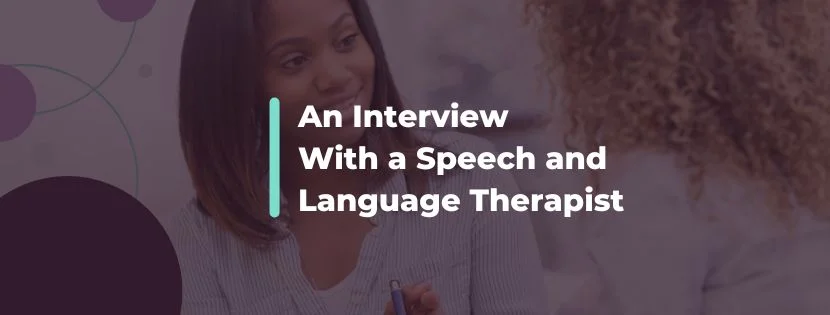Evolution of SEND Provision: Expert Insights on Legislative Changes and SEND Initiatives
23 Aug, 20241-2 minutes
In this blog, you will learn:
- About the evolution of SEND provision over the last 50 years and significant changes to legislation.
- Solutions to reform the SEND sector without the need for new SEND initiatives.
- Where the latest SEND jobs are and how to apply for them.
The Special Educational Needs and Disabilities (SEND) sector has undergone significant changes over the past 50 years and evolving legislation has reshaped the landscape of inclusive education.
SEND provision in schools remains a crucial focus for education, however it can be difficult to understand and comprehend the SEND Code of Practice 2015 as well as the links between SEND and behaviour.
Since he began his SEND career in 1975, Nick White has seen a lot of change in SEND legislation. As a SEND and Inclusion Expert and Consultant, Nick provides training and support to ensure that pupils' needs are met with the aim of improving knowledge and understanding of SEND behaviour.
In this interview, we delve into the evolving landscape of SEND provision, exploring the significant changes in legislation and what can be done to ensure inclusion and improvements in behaviour.
Tell us about your career journey so far
I have worked all of my life in the field of special education and inclusion. I began my career in 1975 in a small independent special school, where I specialised as a Teacher of pupils with Dyslexia. After 5 years there, I went to university for a year, to study for the B.Phil.Ed. Children with Learning Difficulties.
I then became a Head of English at a day and boarding school for pupils with Emotional and Behavioural Difficulties (EBD). In 1995, I became a Deputy Headteacher in another special school for pupils with EBD, becoming Head there in 2001.
In 2006, I had a 6 month break abroad before taking up the post of Principal at Parkwood Hall School in January 2007. I was in post for 11 years and took the school from local authority control into stand-alone academy status. This meant that I was effectively the CEO of a single-school academy trust.
I learnt about running a school as a business (turnover of more than £5 million per year, 120 employees, buildings, etc, as well as 110 students aged 6 to 18) and the importance of good governance.
I retired from Parkwood Hall Co-operative Academy in 2018 and began my second career as SEND and Inclusion Expert and Consultant. I jokingly refer to myself as ‘semi-retired.’ The reality is that I am almost as busy now as when I was in a full-time leadership position. The difference is that I am free to follow my passion, which is that every child should have their needs met and live a fulfilling life.
What do your current roles consist of?
Most of my work centres around my role as a SEND and Inclusion Expert and Consultant. I represent parents of children with SEND at Tribunals and I am a SEND Expert for Independent Review Panels on school exclusions.
I am also a coach and facilitator on National Professional Qualification for Senior Leadership (NPQSL) and National Professional Qualification for Headship (NPQH) programmes, and a trainer and facilitator in the areas of SEND, Diversity, Equality/Equity and Inclusion.
I am currently Independent Chair of a local authority Education Partnership and an Associate Consultant with two organisations working in the field of Diversity, Equity and Inclusion (DEI). I am a powerful advocate of DEI in the workplace. Not only is it the ‘right’ thing to do, but it also demonstrably improves the performance of an organisation to have diversity, especially at board level.
How do you keep up-to-date with changes in the SEND industry?
I tend to do most of my reading online these days. My work requires me to keep up to date with the latest research and I also need to make sure that I understand the implications of Upper Tier Tribunal judgements. I have to confess to a weakness for a good TED talk! Often they provide new and interesting perspectives.
Recently, I did the Oliver McGowan training, and although I have very good knowledge of autism, the trainer commented on how intently I listened to an autistic adult talking about their lived experience. It is all about taking in information from various sources and integrating it with prior knowledge.
I took on the job of representing the parents of a child with Type 1 Diabetes and now I can honestly say that I am an expert on the special educational needs of children with that disability. It helps that I have a passion for learning and a magpie tendency to acquire shiny new bits of knowledge.
What’s the most valuable lesson that you’ve learned in your career so far?
That leadership is leadership, regardless of whether it is in a school or in business. Good leaders have clear values, which they communicate at all times, especially through the way they behave. A good leader recognises the importance of having a diverse team with complementary and synergistic skills.
I am not the world’s best completer-finisher, so I need to have one on my team, although when you run your own business you have to learn to do everything reasonably well, even if it’s not your strength.
Early in my first headship, I realised that I had a lot to learn about leadership from business contexts. I decided to do a Masters of Arts in Education in Leadership and Management, which I enjoyed enormously. I have also started writing a book about the leadership lessons I learnt as a school leader, and how those lessons have a much wider application in the world outside schools and colleges.
Latterly, I have come to realise that my experience as a leader in education enables me to offer a great deal to business/industry/commerce. To be a good leader in education, you have to excel at ‘soft skills.’ There is nothing soft about them! They are powerful skills and they have their roots in emotional intelligence.
What challenges or obstacles have you faced in your career?
Two examples spring to mind, and both are examples of a crisis situation. One was the occasion when I was called to the top floor of the school because a student was threatening to jump out of a window. I ran up the stairs and arrived to see that the student had managed to open a window and had one leg hanging out over the sill. He was very distressed and angry.
I realised immediately that the worst thing to do in that situation would be to rush over and grab him. In this life-and-death situation, what I actually did was relax and lean against the door frame and talk very quietly to him.
My actions were largely instinctive as I had learnt over the years that the most important thing in a moment of crisis is to connect with the other person and establish a rapport.
The other challenge was when a member of staff came to me, in tears, with information about a feasibility study, commissioned by the local authority, to close the school down and develop the site for luxury housing. That moment led to a year-long fight to keep the school open, to become a Foundation School (securing the freehold of the land and buildings) and then to become an academy.
I had to learn about the legal situation, about the different forms of governance, about the risks that we had to mitigate. I also had to learn how to engage with the staff, with the parents, with the local community and politicians in both major parties, to ensure that we had everyone’s support for what we were doing, which was absolutely in the best interests of the families we served.
What does a typical day look like for you?
There is no such thing as a typical day! That is part of the beauty (and the frustration) of it. I am always the first to get up in our house (years of getting up at 6.00am) and the day has to start with a cup of strong coffee. I have a quick read of the main stories in the Guardian online and check out LinkedIn.
Then I may need to get ready for a school visit, or settle down to write a report. I try to keep to some sort of routine, which for the last year or so has included driving our daughter to school most days.
Some days will have a lot of online meetings, others will be free of commitments. Those are the dangerous days! It’s easy to waste hours posting comments on LinkedIn. I have come to accept that, at home, my best work is done between 8.00am and 2.00pm, then after 4.00pm.
A lot of my work is online, even Tribunals, so I always look forward to going into schools. There is a particular kind of energy in a good school, which always reminds me of why I went into teaching in the first place.
I love talking to the students and trying to help staff find solutions to their problems. I am a fan of solution-focussed thinking, where you identify what works (and do more of it) and where you also look for those moments when you might have expected it to go wrong, but it didn’t. We call those moments ‘exceptions’ and we try to understand what made the difference, because that is where the ‘magic’ happens!
How have things changed or progressed in the SEND sector since the start of your career?
During my career, there have been a number of major initiatives, which have transformed the way people think about SEND. The first was the Warnock Report of 1978, which estimated that 30% of the school population have SEN at some point in the school career. Warnock changed a lot of the terminology, and with it came a change in thinking.
Special schools gradually started to think about teaching real-life skills and preparing students for some form of employment. Then came the inclusion / integration movement which was boosted by David Blunkett when he was Education Secretary. His objective, to get more pupils with SEND into mainstream schools, was partly driven by his own negative experiences of a school for the blind, and special schools felt under threat for the first time. Schools which described themselves as for “Delicate” pupils rapidly disappeared and others had to change designation to take more pupils with emotional and behavioural disorders.
Then came the Children and Families Act 2014 (CFA), which was strongly interlinked with the Equality Act 2010. These two pieces of legislation gave legal force to the right of inclusion in mainstream schools for any pupil whose parents wanted it, and introduced the requirement for schools to make ‘reasonable adjustments’ for any student who had a disability. The Code of Practice 2015 made it clear that many SEN conditions were also disabilities.
How do you support schools and improve understanding of SEND?
The CFA and the Code of Practice were landmark pieces of legislation, and had the potential to bring about a massive change in SEND and education. Unfortunately, they were introduced during a period of austerity and inclusion was not funded to the level needed to really make it work.
A decade on, schools struggle to understand and implement the CFA, the Code of Practice and the Equality Act, which is where I come in. I provide expert advice, training, consultancy and support, with the aim of improving knowledge and understanding of SEN, disability, behaviour and inclusion, so that every pupil is more likely to have their needs properly met. When schools meet student’s needs, behaviour improves.
What is the most challenging part of your job?
Building a business model for the purpose of extending my reach and strengthening the impact of what I do. I am working with a personal coach to develop the business side of my activity, mainly to expand my network and get my message into more organisations.
I do what I do because it is a passion of mine, deeply rooted in my values and principles. As a school leader I was able to make a difference in the lives of hundreds of individuals. Now I want to take the impact of what I do to a more strategic level, which is why I have started writing a book and I am making more systematic use of platforms.
There are a lot of people calling themselves consultants, and I have come to realise that I have a wealth of expertise to offer, and that I must overcome my self-doubt and imposter-syndrome, in order to make a difference in the field of SEND and Inclusion.
I have already worked with many schools, two local authorities, a large housing association and a high street bank. I look forward to working with more Heads of Service, senior and middle leaders, Teachers and support workers, in a whole range of organisations. I like making a difference in the lives of children, young people and employees.
What changes would you like to see to better support the needs of children and young people with SEND?
Right now, many voices are calling for massive fundamental changes, including new primary legislation, to transform SEND provision. I think it is too easy and too tempting to think that more legislation is the answer. The Children and Families Act is only 10 years old, and many schools are still struggling to fully understand it and to properly implement the Code of Practice. Headteachers, Principals, CEOs of Multi Academy Trusts and other leaders would benefit enormously from proper training around the links between SEND and behaviour.
One approach would be to look at what is working in schools in relation to SEND and do more of that! As Independent Chair of a local authority Education Partnership, I work hard to encourage schools and colleges to collaborate rather than compete with each other and to share examples of good practice and success stories.
The London Inclusion Charter, which came out of the work of Violence Reduction Unit, is one of many similar initiatives around the country to deal with the underlying causes of challenging behaviour in schools and on our streets.
Under the new government there is an opportunity to look at problems from a more holistic perspective. A particularly glaring example is the fact that most school SEND policies make little mention of challenging behaviour arising out of SEND, and even fewer Behaviour policies make mention of unmet SEND needs being at the bottom of most behaviour incidents.
I believe this reflects the likelihood that, until very recently, the Department for Education seems to have a schism between those looking at SEND and those looking at behaviour.
What would you say has been your biggest achievement in your SEN career?
Being Principal at Parkwood Hall Co-operative Academy (as it became in 2015), I built a fully integrated service, directly employing Speech and Language Therapists, Occupational Therapists, Physiotherapists, Art and Play Psychotherapists and Clinical and Educational Psychologists. We had both day and boarding provision and built a reputation for our expertise in Autism and Inclusion.
I led the school through a process of building a more diverse workforce (for example, we had the first black Deputy Principal in the borough), and encouraged the governing body to become more diverse and more representative of the families we served.
I led the school and the governing body through the process of academisation, with almost unanimous support from parents, staff, students, governors, local authority officers and the local community. However, what was truly touching and humbling at the time of my retirement, was the number of people; staff members, students and parents, who came to me and said: “You probably don’t remember, but we had a conversation once, and you said some things which changed the way I looked at life. You actually changed my life for the better, thank you.”
Do you have any tips or advice for anyone considering a career in SEND provision?
Success in SEND is built upon knowledge, passion and determination. You may not have all of these to begin with, but you will grow with the job. You also have to be prepared for the emotional impact of the work and know that some days you will leave the school feeling like punching the air with joy and pride.
It can be intensely frustrating at times, but it’s all worth it when you get it right. Students with SEND often have a way of saying things with no filter, so they will let you know when you get it right, and when you get it wrong.
What are your career plans for the future?
I want to continue to increase the range and scope of my impact, certainly nationally and possibly internationally. I see myself working in this role for the next 5 years, with the possibility of another 5 years if my health remains as good as it is right now.
When I was a deputy Headteacher, my boss told me that Headteachers who retire tend to fall into two groups; those that put their feet up and those that build a second career in retirement. According to him, the second group seems to go on forever. I consider myself lucky to have ensured that I am in the second group!
SEND jobs
If you’re searching for your next local authority SEND job, why not take a look at the latest vacancies, or simply upload your CV to be notified when a relevant position becomes available.
Local authority recruitment services
As specialist local authority SEND recruiters, we support local authorities nationwide with their temporary, interim and permanent staffing needs.
We can supply SEND staff for service redesign, tackling annual review backlogs and SEND/EHC Case workers to amend plans or hold annual review meetings.
If you’re struggling to fill a vacancy, why not get in touch with one of our team to see how we can help?
- South of the UK - Richard Shorrock
- Midlands & North of the UK - Adam Zyda
Share your experience
Every individual brings a unique set of experiences, thoughts, and insights to the table. We believe in giving a voice to a community of professionals to inspire positive change and champion reform in the SEND sector.
If you work in the SEND sector and would like to share your own personal and professional experiences, we’d love to hear from you. Perhaps you have a different perspective, could offer a fresh angle, or want to challenge assumptions.
Simply reach out to our Head of Content, Nicole Sherwood, to discuss a collaboration which makes your voice count.
Who is Spencer Clarke Group?
Established in 2017, we’re a vibrant and progressive recruitment agency based in the heart of the North West.
We continually reimagine the recruitment process to challenge convention and defy expectations; from creating a better recruitment experience to remodelling employee engagement, we thrive off doing things differently and turning heads along the way.
We operate in two sectors:
In eleven specialisms:
Healthcare, Social Care & Nursing
Corporate Functions & Business Support




